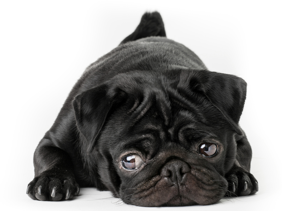Did you know that dog poop piles affect your lawn at a deeper level than garbage left on your lawn? In many ways, dog poop piles take on a life of their own and cause issues you never thought possible. On the brighter side, your dog’s poop tells a story that serves as a cautionary tale into the preventative health of your dog. The following dog waste facts fill several roles. Some dog poop facts are informative, while others are entertaining, and some will provide valuable tips for the future.
1. Lots of Dogs Eat Their Poop
Does your dog eat his poop? According to the American Kennel Club, there’s a scientific name for why dogs eat poop. It’s called coprophagia. A recent study notes that 24% of all dogs have eaten their poop at least once and generally in a home with multiple dogs. It stems from their ancestry when all dogs were scavengers, and couldn’t be picky about what they found to eat. So while this isn’t uncommon, it is not something your dog should continue to do. If this is a habit for your dog, consult your veterinarian, and consider enzyme and vitamin supplementation.
Does your dog eat its own waste? Learn more about coprophagia below!
What is Coprophagia? The Dangers of Your Dog Eating Its Own Poop
2. Dog Poop Poses Environmental Concerns
Dog poop poses a threat to the environment. Unfortunately, many dog owners aren’t aware of this fact and believe instead that dog poop is “natural,” and can’t possibly cause any harm. The truth is that dog waste contains bacteria responsible for illnesses like giardia, salmonella, tapeworms, E. coli and more. Bacterium and these other dangers clearly express the need for properly cleaning up after dogs—whether dog owners do it themselves or hire a dog poop cleanup company to do so for them.
3. Picking Up the Dog Poop Isn’t Always Enough
You may pride yourself on being fastidious about picking up your dog’s poop every time he goes, but PetMD explains that’s not always enough. They suggest cleaning the area by rinsing it with water diluted with bleach— mainly if the dog poop was on the pavement—and then rinsing the solution away. To put it simply, if you step on an area where a dog regularly poops, you are then tracking an array of germs inside your home. Do your kids play on the floor? It doesn’t take rocket science to figure the rest of the scenario! Eliminating the hidden health hazards of dog poop is a practical reason to hire a knowledgeable pet waste removal company. Professional, pet waste removal companies offer sanitizing services for the lawn and other areas laden with dog poop.
4. Dog Poop Provides a Window Into Your Dog’s Health
Dog poop tells a story—a unique one about your dog. By merely examining a pile of poop with the naked eye, you can determine if your dog is healthy or in need of some veterinarian care. For example, black or much darker stools from your dog poop can indicate gastrointestinal problems. Red dog waste or waste with streaks of blood may indicate inflammation in the colon, a rectal injury, an infection or even a tumor. Yellow poop can show a change in diet, but if you haven’t changed your dog’s food, it means it’s time to follow him around to see what else he’s likely ingesting. Most importantly, if you see marked changes in your dog’s poop, it’s cause for investigation.
Want to know what makes your dog’s waste look the way it does? Click below!
The Causes of Common Dog Poop Colors
5. Dog Poop is Not Fertilizer
Dog poop is not like cow manure, which is rich in nutrients. It won’t help turn your lawn lush and green. Pet waste will eventually kill your yard if it’s not disposed of promptly. Some folks believe leaving Fido’s piles of poo exactly where he deposited them is a healthy option for their turf. Erroneously, this couldn’t be farther from the truth. Getting the dog poop—and urine—off your yard is vital to its survival.
6. Yes, You Need to Scoop Dog Poop from Snow
Believe it or not, it is well believed by dog owners that when their dog poops on snow, it will just melt away with the snow in the spring. First of all, dog poop doesn’t melt. Secondly, wherever the melted snow winds up (groundwater, maybe even your drinking water supply?), so do many of the germs from the dog poop. It’s imperative to pick up your dog’s poop, as soon as possible, even if the steamy mounds sit atop a snowbank.
If you require assistance with scooping up your dog’s poop, call POOP 911. POOP 911 will affordably pick it up, haul it away, and even sanitize and deodorize your yard. If you’re a busy pet owner, who understands that it’s best to clean dog waste from your yard correctly, let the professionals handle the mess. Contact POOP 911 today!







